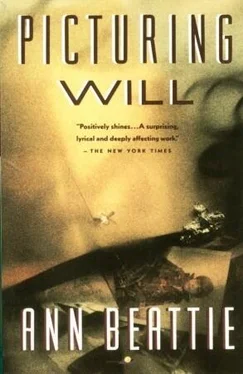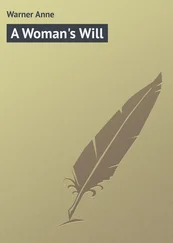Two men pulled out chairs at the adjacent table and sat down. One carried a beat-up violin case with a peeling peace sign stuck to it. The other had eyeglass frames with a false nose and bushy eyebrows pushed to the top of his head. Bushy Brows swatted at his companion and told him to lighten up. “Telling me to lighten up when you’re in one of your manic periods is like telling me to raise my hands above my head as the roller coaster dips down,” the man with the violin case said.
“Do you think they have Bosco?” Bushy Brows said.
“What in the name of God would make you think they might have Bosco?”
“So,” Haveabud said. “Scavullo. Any time better for you than another?”
“I have to go home tomorrow,” Jody said. “A friend is taking care of my son.”
“Aaaaaaah, the son,” Haveabud said, letting her know by his use of the article that the child was interchangeable with an object: the chair, the phone, the stove.
She shrugged, palms up.
What a pretty woman, Haveabud thought. Nice hands. Pretty shoes. Someone’s mother. Why couldn’t he have been dealt such a mother?
The waitress gave him his change. He said, “That’s a private detective double-parked over there. My companion is Sherry Lansing, wearing a wig.”
In his daybook, Haveabud wrote: “Lunch re Scav shot $28.40,” adding twenty cents for good luck. Particularities — that is, lies that were very particular — were in Haveabud’s experience quite likely to convince people.
Haveabud decided he would take Jody up on her offer to accompany her to the photo lab, where contact sheets of the rained-out wedding awaited them. Even Jody could not have imagined the perfect effect of the rain-splashed filter, like a glossy membrane over everything: women clustered under an overhang, hands lifted to their faces in dismay; the chaos made by men first erecting, then abandoning, the tent. It was unclear whether rain or tears glistened on some faces, but the surprise — the shock of the sudden downpour — was there. Ultimately, one rained-out wedding hardly mattered, and because she was so sure of that, Jody decided she would play devil’s advocate and pitch the photographs to Haveabud as serious business.
As his mother and Haveabud sat on the front step of a brownstone, looking at small rectangular images, Will was in Virginia, staring at a peanut butter sandwich Mary Vickers had served him. He had peeled the top piece off, to compare with Wag the number of banana slices each had been allocated.
Haveabud’s lips, smacking with pleasure as he surveyed the photographs, were echoed across the miles by the sticky lips of two small boys who had been told to place the bread back on the sandwich instantly and to begin eating before Mary Vickers went stark raving mad.

Before the child can tell time, the wristwatch with painted hands is not a joke but quite acceptable. Later, he may wish to have a real watch so he can turn back the hands and make the hour earlier and not have to go to bed, or turn the hands ahead so the visit to the circus will come sooner. At first, there is no hostility to clocks. Like a puppy soothed by the regularity of a sound, the child may be consoled or oblivious — but in any case, the sound of seconds ticking away will not correspond to anything real. He may see it as something that fascinates adults: that disc on the wall that is watched so closely when a visitor hasn’t arrived, when the bread has taken too long to rise, when many other people are ahead of you in the pediatrician’s waiting room .
What is time? As the child experiences it, it makes no sense at all. Children have little or no sense of what goes on behind the scenes, so when things happen, they seem to just happen suddenly. Imagine how strange the world would seem if you were too young to know gray clouds meant rain, too inexperienced to realize that the dog coming toward you could run faster than you could get away. Adults become angry when they have to slam on the brakes, unhappy even if the weather report has been unreliable .
Considered from the child’s perspective, life is always speeding up or going too slowly. The best ideas come at bedtime. The circus ends too soon. String beans take forever to eat. Cartoons aren’t satirical exaggerations but normative presentations of everyday situations. The child also will suddenly crash into a wall, unable to correctly judge speed versus distance .
In cartoons, people drop off cliffs .
The child wakes up on the floor, tangled in covers, having toppled — who knows how? — from the bed .
In cartoons, beasts roar and devour people.
Turn a corner in a city, and a gang of pink-haired punks hurtles in front of the child .
In cartoons, buildings suddenly explode .
Remember that the child also sees TV news .
What if your world was a comedy routine gone out of control? What if you experienced the world as a dwarf? What if people saw in you a potential troublemaker simply because you were present? What if half the questions you were asked were rhetorical and the other half inordinately complicated? What if you lacked the ability to judge whether people were drunk or sober, and if your plans for the following day were changed when another person announced a change of plans? What if you lived in one house and suddenly moved to another? What if you had mysterious fevers?
Consider a typical day in the life of a child:
A Day Visit to Mrs. X
Getting up early, on an overcast day. Raincoats put in the car trunk. Finding Ozzie, the rubber turtle, when the trunk lid pops up. Ozzie, saved from oblivion! (Though the child has never been informed of it, Ozzie has been named by the parent after Ozzie Nelson, whose short neck made him look like a turtle.) Then the road: pine trees, with all the green growth high up, which must mean they’re dying. An unfamiliar smell blowing through the windows. The ride is much too long — how can adults just look straight ahead and drive? The parent’s jack-o’-lantern eyes shine brightly in the rearview mirror. The child counts all the cars that are red. Probably the color of the car Santa would drive, if he drove a car instead of a sled. Checking the sky, just to see … but it’s the wrong month. Santa never makes mistakes. He only comes out one night a year .
Arrival at Our Destination
The child is suddenly shy when he meets X, a tall, matronly woman in a gauzy dress. When it blows in the wind, it looks like the ruffling feathers of the lavender-blue bird he saw at the zoo. They let you walk right into the cage with the birds. There are strips of plastic instead of doors. Does X know about the birdcage at the zoo?
The child tells X about the zoo .
X sits on her heels to make eye contact. She says she knew him when he was a little baby .
People say this all the time .
X says she has spent all day cleaning her house; it won’t be much like a zoo. (She says this to the child, but is actually speaking to the parent.)
X rises. The parent and X embrace .
Time stretches endlessly. X brings out cookies. Raisin, not chocolate chip. The child has been told that raisins are monsters’ nose goop .
Slightly embarrassed, the parent says that children are unpredictable. Who knows why they sometimes refuse to eat?
Returning Home from X’s
It might not be a road but the sea. They might be in a boat, not a car. That might not be the setting sun but the North Star by which the parent navigates. Soon all the other cars will have to give sea room. Sea room means that other boats are supposed to come only so close. What if there was sidewalk room, and people were supposed to stay a certain distance away? Or bedroom room, and your stuffed animals needed to be one foot away from you? The child decides that before he goes to bed, he will see that Dobbin, Chubby, and Sheila Skunk are all one foot from his side, instead of nestled close. That is, if the hill they are about to ascend doesn’t turn into a wave that crashes, sending their car far off its path. With relief, he sees that they have caught the wave perfectly. Then there is more black sea in front of them. Distances across water are farther than they seem .
Читать дальше













